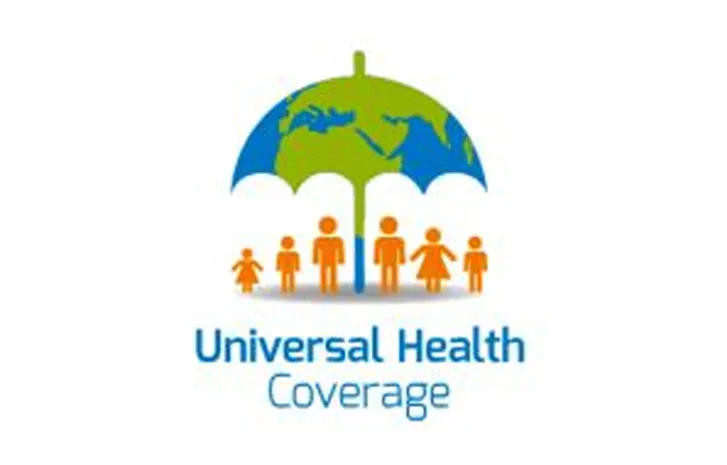
On December 12, as the world celebrates the 2024 Universal Health Coverage (UHC) Day, Nigeria is expected to reaffirm its commitment to achieving this crucial milestone.
According to the World Health Organisation (WHO), UHC ensures that all individuals have access to the full range of quality health services they need, when and where they need them, without financial hardship. It spans essential health services, including health promotion, prevention, treatment, rehabilitation and palliative care across all stages of life.
Achieving UHC is key to addressing the healthcare challenges faced by millions of Nigerians, especially women and children. The annual celebration of UHC Day underscores that health is a fundamental human right and that no one should be excluded from accessing essential healthcare services.
Globally, about two billion people face financial hardship due to health costs, including one billion who experience catastrophic out-of-pocket expenditures. Of these, 344 million are pushed into extreme poverty. These staggering figures highlight the urgency of achieving UHC.
At the 65th National Council on Health in Maiduguri, Borno State, the Federal Government, in collaboration with the Association of Local Governments of Nigeria (ALGON), called for collective action across sectors to drive sustainable healthcare improvements.
This aligns with the global UHC Day theme, emphasising the importance of collaboration in achieving health equity and ensuring access to health services without financial hardship.
The Minister of Health and Social Welfare, Prof. Mohammed Pate stressed the need for collaboration across all levels of government, healthcare providers, and civil society to address barriers to healthcare delivery, particularly in maternal health.
Local governments, through ALGON, are playing a pivotal role in these efforts via their Primary Healthcare Revitalisation and Operationalisation Programmes (APH-ROP). These initiatives are critical to ensuring no one is left behind in Nigeria’s pursuit of UHC by 2030.
In the remote Burra community of Ningi local government area, Bauchi State, Mrs. Safiya Abdullahi, a housewife, recalled a time when fever meant a life-threatening journey to the nearest town.
“Today, thanks to investments in revitalised primary healthcare systems led by our local government, we can access essential health services just a short walk from home,” Abdullahi said.
Her story reflects a broader transformation driven by Nigeria’s local governments to bridge healthcare gaps. With ALGON’s renewed commitment and collaboration with state and federal stakeholders, local councils are becoming vital players in the UHC journey.
ALGON chairman, Taraba State and ALGON welfare officer,Hon. Aminu Juaro Hassan explained that ALGON, representing all 774 local government councils (LGCs) in Nigeria, has launched the APH-ROP to strengthen primary healthcare service delivery nationwide.
Hassan said the programme aligns with the Nigeria Health Sector Renewal Investment Initiative (NHSRII) and aims to achieve UHC and the United Nations Sustainable Development Goals (SDGs) by 2030.
“The key objectives of APH-ROP include empowering LGCs to manage primary healthcare services autonomously, establishing mechanisms for prioritising health expenditures to drive economic development, and fostering collaborations with federal and state governments, private sector actors, development partners and community leaders,” Hassan said.
“It also aims to create a centralised data-driven health information system linked to the National DHIS2 to monitor health trends and outcomes, while building a high-performing and motivated health workforce through systematic training, monitoring and evaluation,” he added.
National president of ALGON, Mr. Bello Lawal highlighted the programme’s multisectoral approach, which includes grassroots advocacy, community sensitisation, and resource mobilisation to strengthen demand for healthcare services.
He emphasised that the policy roadmap focuses on improving health leadership, stakeholder engagement, and building resilient health systems to meet UHC and health security standards.
The Bayelsa State Commissioner for Health, Dr. Seiyefa Brisibe noted the use of drones to overcome logistical barriers, such as delivering vaccines to remote, waterlogged communities inaccessible by road. The state also involves community leaders in Primary Health Care Task Force meetings to monitor progress.
In Ogun State, Dr. Tomi Coker said baseline data revealed that only 40 per cent of women delivered with skilled birth attendance. To address this, the state trained traditional birth attendants (TBAs) to improve referrals and maternal outcomes.
“By designing comprehensive interventions addressing both demand-side and supply-side factors, the state has improved maternal health outcomes significantly,” Coker said, adding that this approach could be replicated nationwide.
Chief of Party for the USAID-funded Local Health System Sustainability Project (LHSS), Dr. Bolanle Olusola-Faleye expressed optimism about these initiatives’ potential to reduce maternal and child mortality and strengthen healthcare delivery.
She emphasised the importance of monitoring, sustainability, and equity to ensure no community is left behind.
“The implementation phase, set to begin next year, will involve ALGON and partners establishing governance frameworks, enhancing human resource capacity and driving community-based advocacy,” Olusola-Faleye said.
WHO Nigeria country representative, Dr. Walter Mulombo stressed the importance of global partnerships in advancing health and education at the local level. He praised ongoing efforts to strengthen health systems nationwide.
Meanwhile, president of the Healthcare Federation of Nigeria, Dr. Pamela Ajayi underscored the role of the private sector in healthcare delivery through initiatives such as the GDP and the New World Initiative, which use mobile health technology to improve primary healthcare access.
Co-convener of the UHC2023 Forum, Dr. Gafar Alawode called for collective action to reduce preventable deaths, improve healthcare infrastructure and support healthcare workers.
“Addressing Nigeria’s healthcare challenges requires unified effort and determination,” Alawode said.
ALGON’s APH-ROP initiative, aligned with NHSRII and SWAp, underscores the crucial role of local governments in driving UHC. Through innovation, collaboration and strategic partnerships, local governments are ensuring that individuals like Abdullahi and many others have access to life-saving healthcare services, bridging the gap toward a healthier, more equitable Nigeria.

